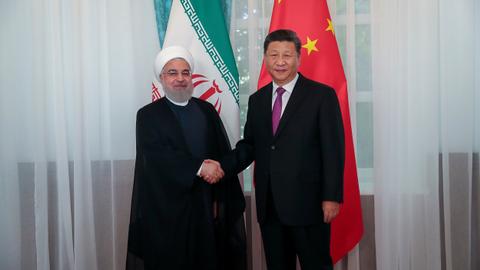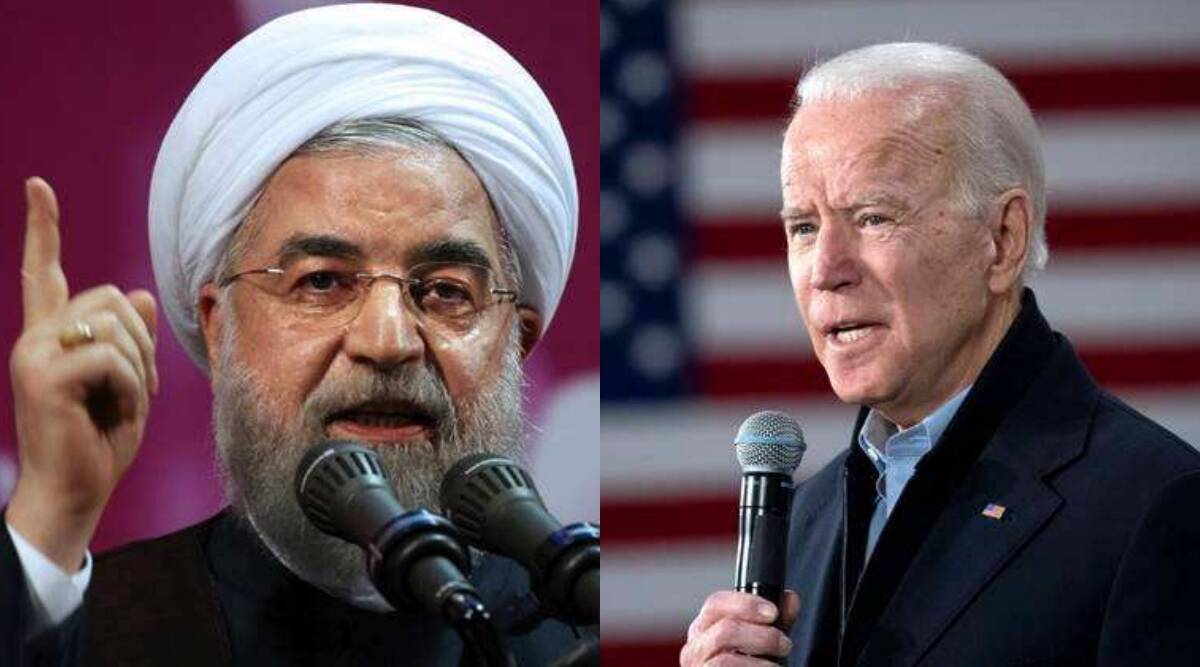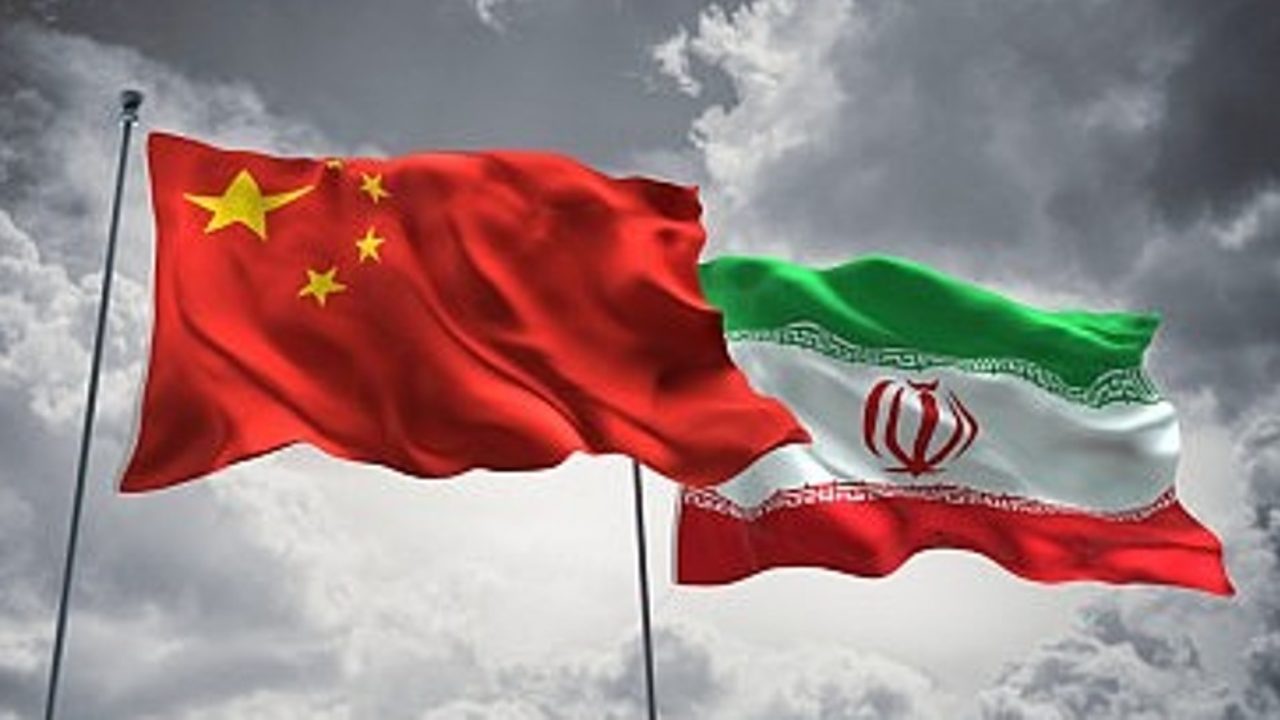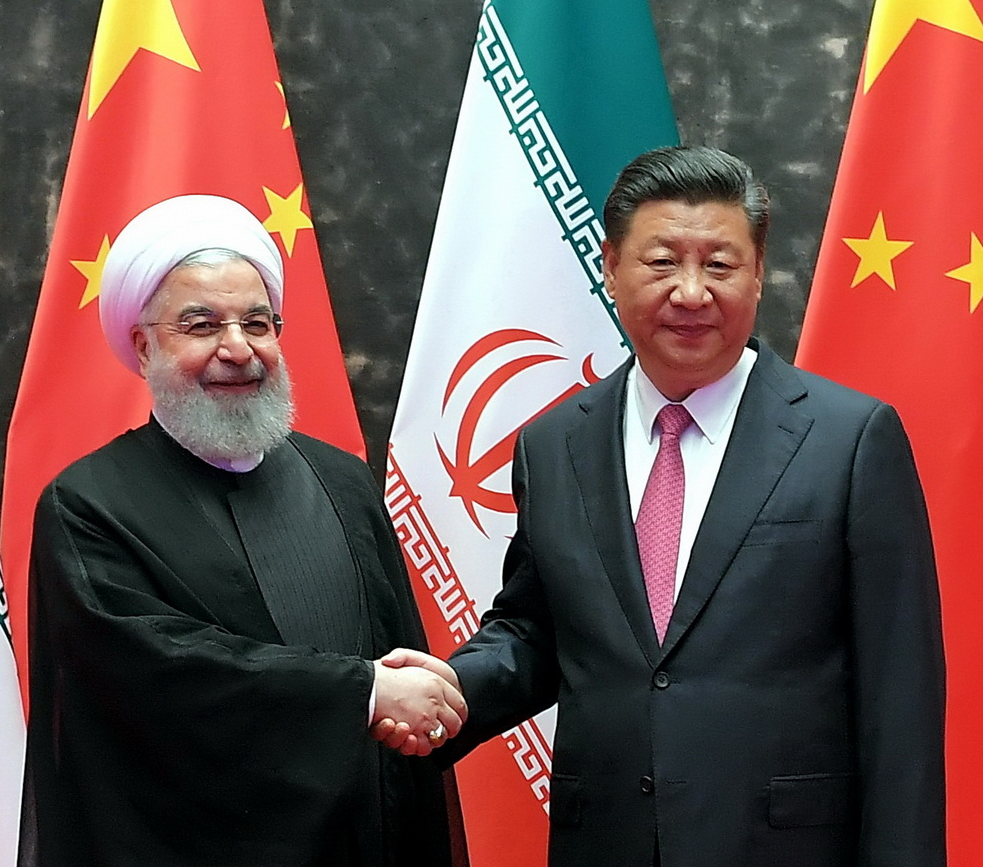PoliTact periodically invites leading regional and global experts to understand the changing geopolitical situations and significant emerging themes. One such theme is the budding China-Iran economic and security partnership.
China and Iran are entering a $400 billion 25 year economic and security deal that would lead to enhanced military and trade relations. The agreement ensures Chinese investment in Iranian telecommunication, transportation, and military fields. The military cooperation includes exercises, intelligence sharing, and joint research and development of weapons. China will also procure its energy needs from Iran on discounted price for over next 25 years.
On July 28, 2020, PoliTact held a webinar to discuss the potential China-Iran economic deal and its impact on the China-Pakistan Economic Corridor (CPEC). The panelists analyzed the major developments taking place in the South Asia and Middle East regions and provided perspectives on the evolving situation. The theme has taken on added significance in the aftermath of the US elections and with additional Muslim states, such as UAE, Bahrain, Sudan, and Morocco officially recognizing the state of Israel.
CEO and Chief Analyst of PoliTact, Arif Ansar, moderated the panel discussion. The opening remarks were made by Ikram Sehgal, who is a Chairman of the Karachi Council on Foreign Relations, CEO of Pathfinder Group, and member of the East West Institute’s Board of Directors.
The panel included:
- Ambassador Mustafa Kamal Kazi – Senior Vice Chairman at the Karachi Council on Foreign Relations, former Foreign Secretary and Ambassador of Pakistan to the Russian Federation, the Kingdom of Netherlands, Republic of Indonesia and Republic of Iraq.
- Khaled Almaeena – Former Editor-in-Chief of Arab News and Saudi Gazette, CEO of a PR Firm, and Saudi Television news anchor.
- Claude Rakisits – Honorary Professor at the Asia Pacific College of Diplomacy at the Australian National University. He is also a Director at PoliTact and covers the South Asia and Middle East region.
The Webinar explored the following key questions:
- What are the implications of the China-Iran economic and security deal on the China Pakistan Economic Corridor (CPEC)?
- Assessing Chinese influence in the Middle East region and does the China-Iran deal represent a Chinese pivot to the Middle East? Moreover, how does Chinese sway play out against that of India, Israeli, and the US in the region?
- How then does the China-Iran treaty correlate with the Quad and Indo-Pacific strategy?
- Will China use the Iran deal as a leverage in its dealing with the US, just as Russia has done?
- History informs that Muslim nations or empires have often sided with one or the other global power – and then fought directly with each other. What can be done to prevent such an outcome in the framework of the present regional and global geopolitics?
Implications of the potential China-Iran Deal on China Pakistan Economic Corridor (CPEC)
There are multiple angles to review this connection; that of Pakistan and Iran, and one cannot ignore the positions of China and the US.
Pakistan sees no negative impact of the potential China-Iran deal on CPEC. Former foreign minister Sartaj Aziz once stated that the Chabahar Port was not competing with the Gwadar port, in fact they were seen as complimentary. Media reports have also indicated that a road was to connect the two closely located ports at some point.
On the other hand, Iran is likely to see the Chinese deal as a blessing in disguise. Fearing US sanctions, Pakistan has been dragging its feet on the Iran Gas pipeline project for years, and India has also been slow in developing the Chabahar Port. In all likelihood, once the deal is finalized, Chinese investments will start flowing in quickly and provide immense relief to the much-penalized Iran. More importantly, the China-Iran deal would provide the strategic counterbalance to the American, Israeli, and Arab pressure.
According to Ambassador Kazi, the US withdrawal from the Iranian deal of 2015, and mismanagement of the multipolar world is one of the reasons China-Iran economic and security partnership is coming to fruition.
However, for China the treaty with Iran diversifies the Belt and Road Initiative (BRI) providing it with another tributary. This is especially true if the CPEC route runs into trouble, or if the work slows down considerably due to the American, Indian, and Arab pressure on Pakistan.
Chinese Pivot to the Middle East and American, Israeli and Indian Coalition
China has been building strategic ties with the Middle East for some time now in addition to the Asia Pacific, Middle East represents its other flank. Khaled Almaeena pointed out that the Saudi ties with China got underway in the 90s, as the Gulf region started to balance ties between China and the US. On the other hand, Dr. Claude Rakisits noted that the Chinese push westward is not necessarily a pivot, irrespective, the Iran deal will be seen negatively in both Saudi Arabia and the US.
Speaking at the Saudi embassy in China in July on the occasion of the 30 anniversary of the establishment of diplomatic ties, Saudi Ambassador Turki M. A. Almadi commented: “our relations are all-round, multi-field, not only about bilateral trade and mutual investment, but also extended to cooperation in the fields of culture, science and technology, and health.”
Zhai Jun, China’s special envoy on Middle East affairs indicated at the occasion that the bilateral trade volume between the two nations stood at $78.04 billion at the end of 2019. He added Saudi Arabia was the largest supplier of crude oil to China, and also the Arab nation’s largest trading partner.
Through its Belt and Road Initiative (BRI), China has become an active player in the Middle East with strategic ties with a number of regional players including Saudi Arabia. As its influence increases gradually, it could become an active interlocutor between Israel and the Palestinians, and other conflicts of the Middle East. However, it is not clear if China aspires to get involved in the security affairs of the region, like Russia has in Syria.
Chinese analysts present its case so that the nation wants to be more active in providing economic support than engaging in security affairs of the Middle East. Nonetheless, China has amicable political and military relations with both Iran and Israel. As part of BRI, China has been extending its trade relations with Israel and lately the US has objected strongly to some of them citing security concerns such as the Chinese company Shanghai International Port Group (SIPG) running a container terminal at the Port of Haifa near an Israeli naval base that is frequently visited by the US Sixth Fleet.
If the China-Israeli economic ties continue to strengthen uninhibited, over time China will be able to build leverages that can potentially undercut US primacy in the affairs of the Middle East. The Israelis disagree on this possibility, stating that the nature of its ties with China and the US are of totally different nature. Nonetheless, the push under President Trump to normalize ties between Israel and the Arab nations can be seen as an attempt to counter China becoming an influential Middle Eastern player in the future.
When it comes to the Indian alignment with Israel and its growing ties with the Gulf nations, a different question is raised. How do these relations undercut the traditional support Pakistan has generated from the Gulf region? In November 2018, PoliTact collaborated with the Middle East Institute to examine the political, security, and economic interconnections between South Asia and the Gulf States, and one of the subsets, Pakistan and Gulf Cooperation Council (GCC). The report pointed out to how India was strategically undermining Pakistan, a risk that has matured now.
Commenting on this during the webinar, Mr. Khaled Almaeena stated that Pakistan’s position has been undermined by the negative economic and security news consistently emanating from the country. And this has been occurring at a time when India has positioned itself as an information technology and economic powerhouse, and by investing in Saudi Arabia that brought jobs to the Kingdom. He further added, the younger leadership of KSA do not hold the same kind of affinity towards Pakistan as past leaders had.
Irrespective, we can see an attempt to undermine both the Chinese and Pakistan connections in the Middle East as they compete with the American, Israeli and Indian interests.

China-Iran Deal and Quad Strategy
Answering the moderator as noted above, Dr. Claude Rakisits noted that the Chinese push westward does not represent its pivot to the Middle East and how this relates to the Quad strategy is a different angle.
Dr. Claude added that Quad is meant to “keep China within its borders”. And as a counter, China is pushing US away from the first island chain by building artificial islands in the South China Sea. Moreover, China-Iran deal counteracts Quad and the Indo-Pacific strategy by providing China with a key footprint in the Indian Ocean, which together with Gwadar and Djibouti, enhances Chinese naval potential.
While Quad would desire to box-in China, conversely China wants to limit the Indian role in the Indian Ocean and the Pacific, by keeping it busy within its borders. This dynamic can be witnessed by the present tensions and skirmishes on the Line of Actual control (LAC) and the Ladakh region.

Biden’s Middle East Policy, Iranian Sanctions, and Chinese Leverage
A related inquiry has to do with sanctions on Iran and how will China navigate them? Previous European attempts to build trade relations with the nation hit numerous roadblocks. As soon as the Trump administration took oath in January 2017, within almost a year and a half of signing the Iran nuclear deal (July 2015), US started to build pressure on western companies attempting to build trade relations with Iran. As a result, even the $20 billion aircraft deal Boeing had signed with Iran had to be scrapped.
Under President Elect Biden’s Iran Policy, will these sanctions be eased if US rejoins the treaty? This will all depend on how the Biden administration re-engages Iran. Recently Biden has indicated that it will want to renegotiate the Iran deal to include its missile program, and wider behavior in the region; these were widely seen as major weaknesses of the 2015 deal.
This, however, will likely be a non-starter for Iran. The country has expressed it would not enter fresh negotiations with the US when even the terms and guarantees of the 2015 agreement were not kept.
A parallel concern is, with the ‘Outside In’ approach to the Middle East Peace Process so far along resulting in the Abraham Accords, will President Elect Biden’ be able to reverse it and thus jeopardize the present Arab-Israeli normalizing process? A more likely approach would be that the normalization process would have to incorporate the two-state solution under Biden including a more transparent give and take by the Israelis of the type that is frequently hinted by the Saudi leadership.
Irrespective, Dr. Claude was of the opinion that China will continue its dealings with Iran, despite the sanctions, and will push back on any efforts to restrict the ties between Iran and China. It is also possible that China will use the Iran deal as a leverage in its dealing with the US, just as Russia has done in the past. On several occasions when Russian ties stumbled with the West, it threatened to supply Iran with modern weaponry that could help it withstand any attack on its nuclear program.

The US Iran policy has circled around two approaches recently: the negotiated settlement that was adopted by President Obama by signing the JCPOA in 2015, which sidelined the aggressive route against Iran propagated by Israel and Saudi Arabia. Trump took on the more militaristic alternative moving away from the two-state solution, with wider recognition of Israel from the GCC and Arab States. The assassination of two top Iranian officials recently: Major General Qassim Soleimani and nuclear scientist Mohsin Fakhrizadeh, are linked to this approach.
The challenge is that a military solution towards Iran would be unacceptable for both China and Russia. Similarly, the reenactment of the JCPOA, along with the potential China-Iran deal, will make China a stronger player in the Middle East. It could possibly utilize its clout to bring about Israeli-Palestinian agreement, which US has not been able to do alone.
On the one hand this cooperation between China and the US would be an immensely positive development that can bring about peace in the Middle East. However, this directly contradicts what is transpiring in the Asia Pacific and resulting Indo-Pacific and the Quad strategy. And this also does not factor in the Russian role in the whole scenario and the interplay of the Muslim Middle powers, such as Turkey, Iran, Saudi Arabia, and Pakistan.
Islamic World and Global Power Tussles
In the past Muslim nations or empires have often sided with one or the other global power and then fought directly with each other. And the question becomes what can be done to avert such an outcome in the framework of the present regional and global geopolitics.
Replying to the moderator, Khaled Almaeena pointed out that the Organization of Islamic Conference (OIC) is unable to fulfill this role. He added this requires strong Islamic leadership to prevent being exploited, commitment to their citizens, and rule of law. Moreover, he stated that ‘if Iran suffers, the Arabs will suffer too’. In his opinion CPEC can play a constructive role by being a bridge, ‘good economics makes good politics,’ he stated.
On the other hand, Ambassador Kazi was critical of the role the GCC nations have played in this regard and pointed to the infighting between the Arab nations. He noted that ‘what happens in the Arab world, impacts the Islamic world’.
Meanwhile, Ikram Sehgal added the role of Turkey is important, and one should not forget the Regional Cooperation for Development Organization (RCD) formed between Pakistan, Iran, and Turkey in 1964, and replaced by Economic Cooperation Organization (ECO) in 1979. He emphasized that Russia and China have good ties with Pakistan, Turkey and Iran, and that ‘constructive engagement can be a harbinger of peace’.
Conclusion
While Saudi Arabia has delayed recognizing the statehood of Israel, and while Qatar remains closer to Turkey, the shifting of the alliance of most GCC and Arab nations towards Israel and the US represents a decisive shift in the balance of power. Adopting the threat perception that centers on Iran, and without any clear give and take from Israel in the context of Abraham Accords, is likely to revitalize the message of non-state actors.
While China has made an economic entry in the Middle East, it has not decided to influence the security affairs other than under the umbrella of UN and for maritime security purposes. In Syria too, it has adopted a non-interventionist approach and has supported the Assad regime.
However, economic leverages will eventually lead to influences in other areas. And China would have to utilize its sway especially when it has the most to lose if a conflict breaks out in the region. One measure, if matters are heading in that direction, would be the establishment of military bases, like the one in Djibouti, and potential militarization of Gwadar and Chabahar port. And in this context, the Iran-China economic and security deal takes on an added emphasis.
In the long run, the US would want to create a wedge between China and Russia. Since attaining self-sufficiency in its energy needs, the US interests in Middle East is primarily to prevent nuclear weapons from falling in the hands of rogue states, or non-state actors, and this is a goal it shares with Israel. At the same time, the US would not want to lose its primacy in the Middle East, but to exploit the existing fault lines to further extend its reach to the detriment of China and Russia.
At the same time, under the new US leadership, there is an opportunity to move away from the zero-sum approach to world affairs by reaching out to China for a wider détente and cooperation and the geopolitics resulting from the Coronavirus related pandemic especially necessitates that. Reaching that stage, however, would require a smooth transition of power in the US first.




